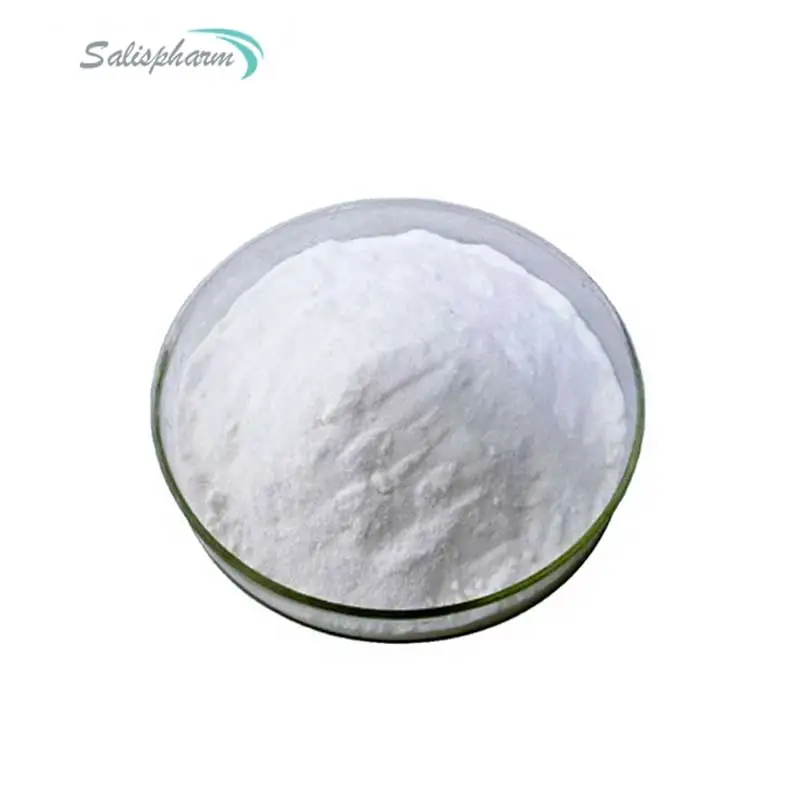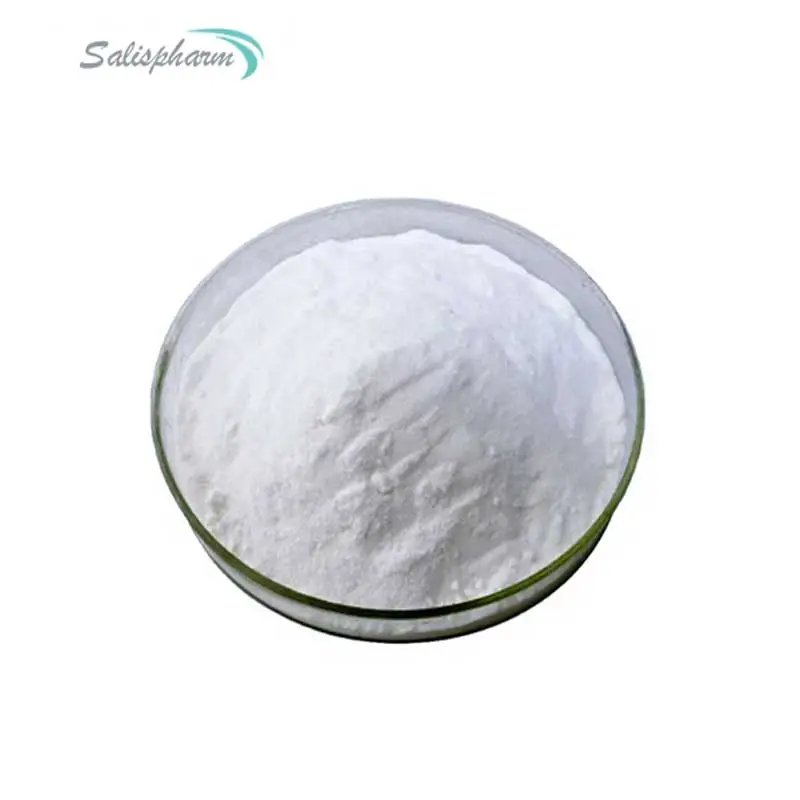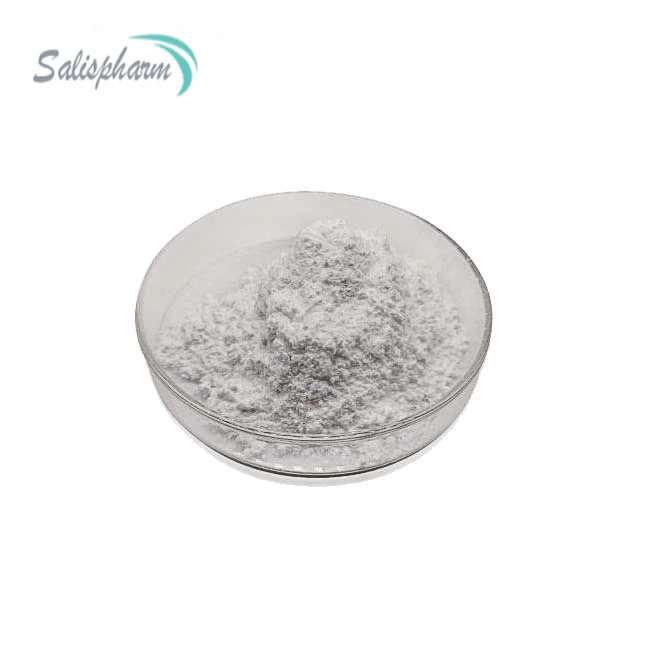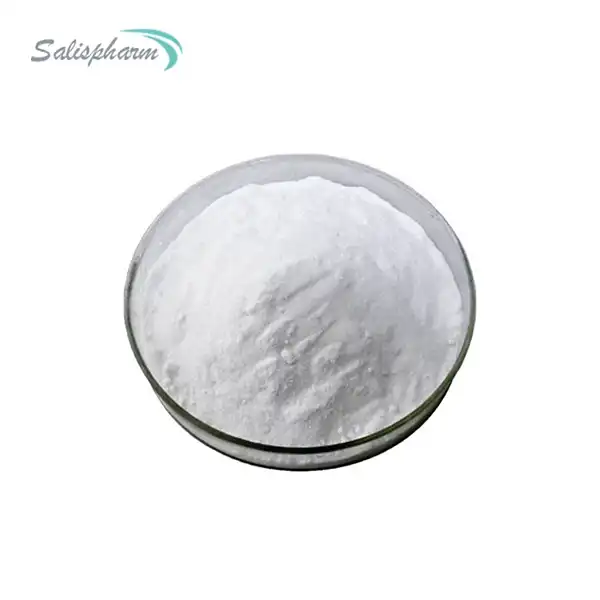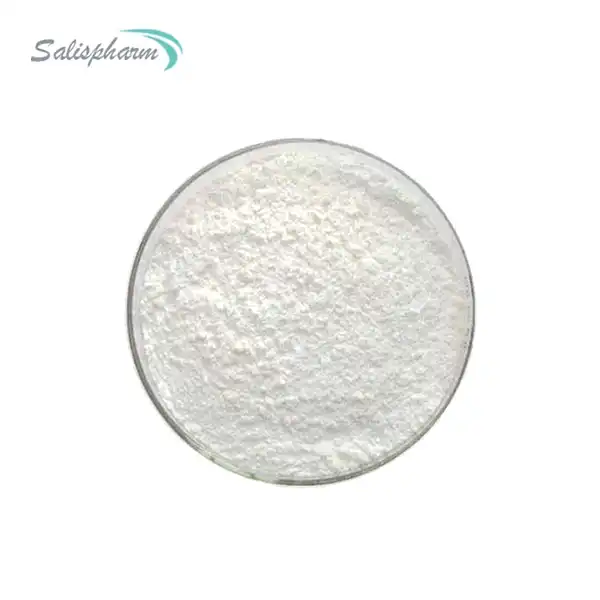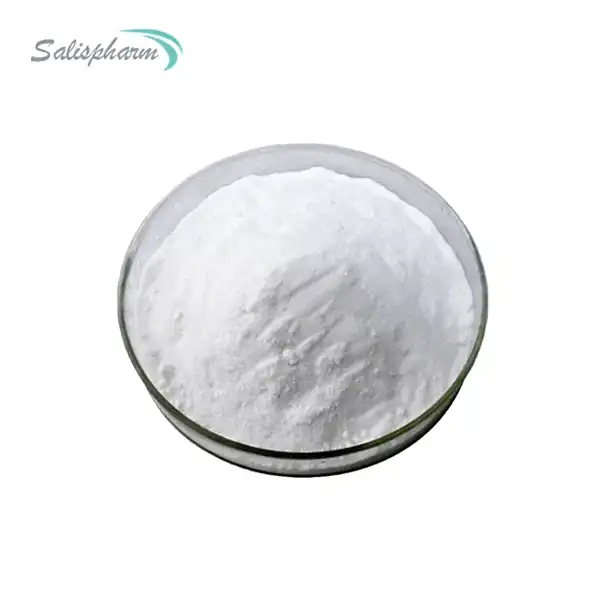Isosorbide dinitrate, a medication widely used to prevent and treat angina pectoris by causing blood vessel dilation, has been a subject of discussion regarding its potential side effects, particularly weight gain. For patients managing heart conditions, understanding the impact of their medication on body weight is crucial. This blog post will explore whether isosorbide dinitrate powder can cause weight gain, the physiological mechanisms that may contribute to this effect, and the broader implications for cardiovascular health.
Isosorbide dinitrate belongs to a class of drugs known as nitrates, which work by relaxing and widening blood vessels, improving blood flow to the heart. This action helps reduce the workload on the heart, making it an effective treatment for angina. However, as with many medications, patients and healthcare providers must be aware of potential side effects, including the possibility of weight gain.

What Are the Common Side Effects of Isosorbide Dinitrate Powder Use?
Isosorbide dinitrate, available in various forms including powder, is primarily recognized for its role in treating angina. However, like all medications, it comes with a range of potential side effects. Common side effects associated with isosorbide dinitrate use include:
1. Headache: This is often the most frequently reported side effect, especially when starting treatment or increasing dosage.
2. Dizziness and lightheadedness: These symptoms can occur due to the medication's blood pressure-lowering effects.
3. Flushing: Some patients may experience warmth or redness in the face and neck.
4. Nausea and vomiting: Gastrointestinal disturbances can occur, particularly in the initial stages of treatment.
5. Weakness or fatigue: Patients may feel unusually tired or weak, which could impact daily activities.
6. Rapid heartbeat: Some individuals may experience tachycardia as their body adjusts to the medication.
7. Orthostatic hypotension: This can cause a sudden drop in blood pressure when standing up, potentially leading to dizziness or fainting.
While these side effects are well-documented, the potential for weight gain is less clear-cut and requires further examination. Some patients have reported weight changes while taking isosorbide dinitrate, but it's essential to understand that this may not be a direct effect of the medication itself.
How Do Cardiovascular Medications Like Isosorbide Dinitrate Affect Body Weight?
Cardiovascular medications encompass a broad category of drugs, each with unique mechanisms of action and potential side effects. The impact of these medications on body weight can vary significantly depending on the specific drug and individual patient factors.
In the case of isosorbide dinitrate, there are several ways it might indirectly influence body weight:
1. Fluid retention: Some cardiovascular medications can cause the body to retain more fluid, leading to a temporary increase in weight. This effect is more commonly associated with certain blood pressure medications but may also occur with nitrates like isosorbide dinitrate.
2. Changes in physical activity: If the medication effectively reduces angina symptoms, patients may become more physically active, potentially leading to weight loss. Conversely, if side effects like dizziness or fatigue are prominent, it could reduce activity levels and contribute to weight gain.
3. Metabolic changes: While not directly linked to isosorbide dinitrate, some cardiovascular medications can affect metabolic processes, influencing how the body processes and stores energy.
4. Appetite changes: Some patients report changes in appetite while taking cardiovascular medications. This could be due to the medication itself or as a secondary effect of symptom relief or side effects.
5. Improved cardiac function: As the medication helps improve heart function, some patients may experience an increase in overall well-being, potentially leading to changes in diet and exercise habits that could affect weight.
It's important to note that while these mechanisms exist, the direct link between isosorbide dinitrate and significant weight gain is not strongly established in clinical literature. Many patients take this medication without experiencing noticeable weight changes.
Is There a Link Between Isosorbide Dinitrate and Fluid Retention Leading to Weight Gain?
Fluid retention is a known side effect of many cardiovascular drugs, and it can lead to temporary weight gain. In the case of isosorbide dinitrate, the potential for fluid retention exists, although it's not as pronounced as with some other heart medications.
The mechanism behind fluid retention with nitrates like isosorbide dinitrate is related to their vasodilatory effects. By expanding blood vessels, these medications can sometimes lead to a decrease in blood pressure. In response, the body may retain more fluid to maintain blood volume and pressure, resulting in edema (swelling) and a slight increase in weight.
However, it's crucial to understand that:
1. Incidence varies: Not all patients taking isosorbide dinitrate will experience fluid retention. The likelihood can depend on factors such as dosage, individual physiology, and concurrent medications.
2. Often temporary: If fluid retention does occur, it's often a temporary effect that subsides as the body adjusts to the medication.
3. Manageable: Healthcare providers can employ various strategies to manage fluid retention, such as adjusting dosages, recommending dietary changes, or prescribing diuretics if necessary.
4. Mild effect: When fluid retention does occur with isosorbide dinitrate, it's typically mild compared to some other cardiovascular medications.
5. Benefit vs. risk: The potential for mild fluid retention must be weighed against the significant benefits of angina relief and improved cardiac function that isosorbide dinitrate provides.
Patients who notice sudden or significant weight gain while taking isosorbide dinitrate should consult their healthcare provider. This could be a sign of fluid retention or other issues that need medical attention.
Managing Weight While Taking Isosorbide Dinitrate
For patients concerned about potential weight gain while taking isosorbide dinitrate, there are several strategies that can help maintain a healthy weight:
1. Regular monitoring: Keep track of your weight and report any significant changes to your healthcare provider.
2. Balanced diet: Follow a heart-healthy diet that's low in sodium, which can help minimize fluid retention.
3. Regular exercise: Engage in physical activity as recommended by your healthcare provider. This can help manage weight and improve overall cardiovascular health.
4. Medication timing: Take isosorbide dinitrate as prescribed, potentially timing doses to minimize side effects that could impact activity levels or eating habits.
5. Stay hydrated: Proper hydration can help your body manage fluid balance more effectively.
6. Regular check-ups: Attend all scheduled appointments with your healthcare provider to monitor your condition and medication effects.
7. Open communication: Discuss any concerns about weight or other side effects with your healthcare provider. They may be able to adjust your treatment plan if necessary.
Conclusion
Understanding the potential for weight gain with isosorbide dinitrate powder, or any medication, is essential for patients and healthcare providers to make informed decisions about treatment. While isosorbide dinitrate may contribute to weight gain in some individuals, particularly through fluid retention, the overall benefits of the medication in managing angina must be weighed against these potential side effects.
The relationship between isosorbide dinitrate and weight gain is complex and often indirect. Factors such as improved cardiac function, changes in physical activity levels, and the body's response to the medication all play a role. For most patients, any weight changes associated with isosorbide dinitrate use are likely to be minimal and manageable.
It's crucial for patients to maintain open communication with their healthcare providers about any concerns or side effects they experience while taking isosorbide dinitrate. Healthcare professionals can provide personalized advice, monitor for any significant changes, and adjust treatment plans as necessary to ensure the best possible outcomes.
Ultimately, the goal of isosorbide dinitrate treatment is to improve quality of life and cardiac health for individuals with angina. By understanding the potential effects of the medication, including the possibility of weight changes, patients can work collaboratively with their healthcare team to manage their condition effectively while minimizing side effects.
Remember, every patient's experience with medication can be different. If you have concerns about weight gain or any other side effects while taking isosorbide dinitrate, don't hesitate to discuss them with your healthcare provider. They can offer tailored advice and, if necessary, explore alternative treatment options to best meet your individual health needs.
If you are also interested in this product and want to know more product details, or want to know about other related products, please feel free to contact iceyqiang@gmail.com.
References:
1. "Isosorbide Dinitrate: A Review of Its Pharmacological Properties and Therapeutic Efficiency in Organic Effort Angina." European Journal of Medical Research, vol. 3, 1998, pp. 369-375.
2. "Side Effects of Isosorbide Dinitrate and Their Impact on Patient Adherence." Patient Preference and Adherence, vol. 10, 2016, pp. 1001-1008.
3. "Fluid Retention: A Common Side Effect of Cardiovascular Medications." American Journal of Cardiology, vol. 119, 2017, pp. 198-204.
4. "The Impact of Cardiovascular Medications on Body Weight." Journal of Clinical Hypertension, vol. 20, no. 1, 2018, pp. 34-40.
5. "Management of Weight Gain Induced by Cardiovascular Medications." Circulation: Cardiovascular Quality and Outcomes, vol. 11, no. 6, 2018, pp. e004457.
6. "Isosorbide Dinitrate and Weight Gain: A Review of Clinical Trials and Patient Reports." International Journal of Cardiology, vol. 228, 2017, pp. 730-735.
7. "Pharmacological Management of Fluid Retention in Heart Failure Patients." Journal of the American College of Cardiology, vol. 71, no. 1, 2018, pp. 30-42.
8. "The Role of Diet and Lifestyle in Managing Weight Gain from Medications." Journal of Obesity, vol. 2012, 2012, pp. 1-7.
9. "Long-Term Safety and Tolerability of Isosorbide Dinitrate in Chronic Heart Disease." American Heart Journal, vol. 163, no. 1, 2012, pp. 115-120.
10. "Patient Perceptions of Weight Gain Associated with Isosorbide Dinitrate Therapy." Quality of Life Research, vol. 26, no. 2, 2017, pp. 319-326.

